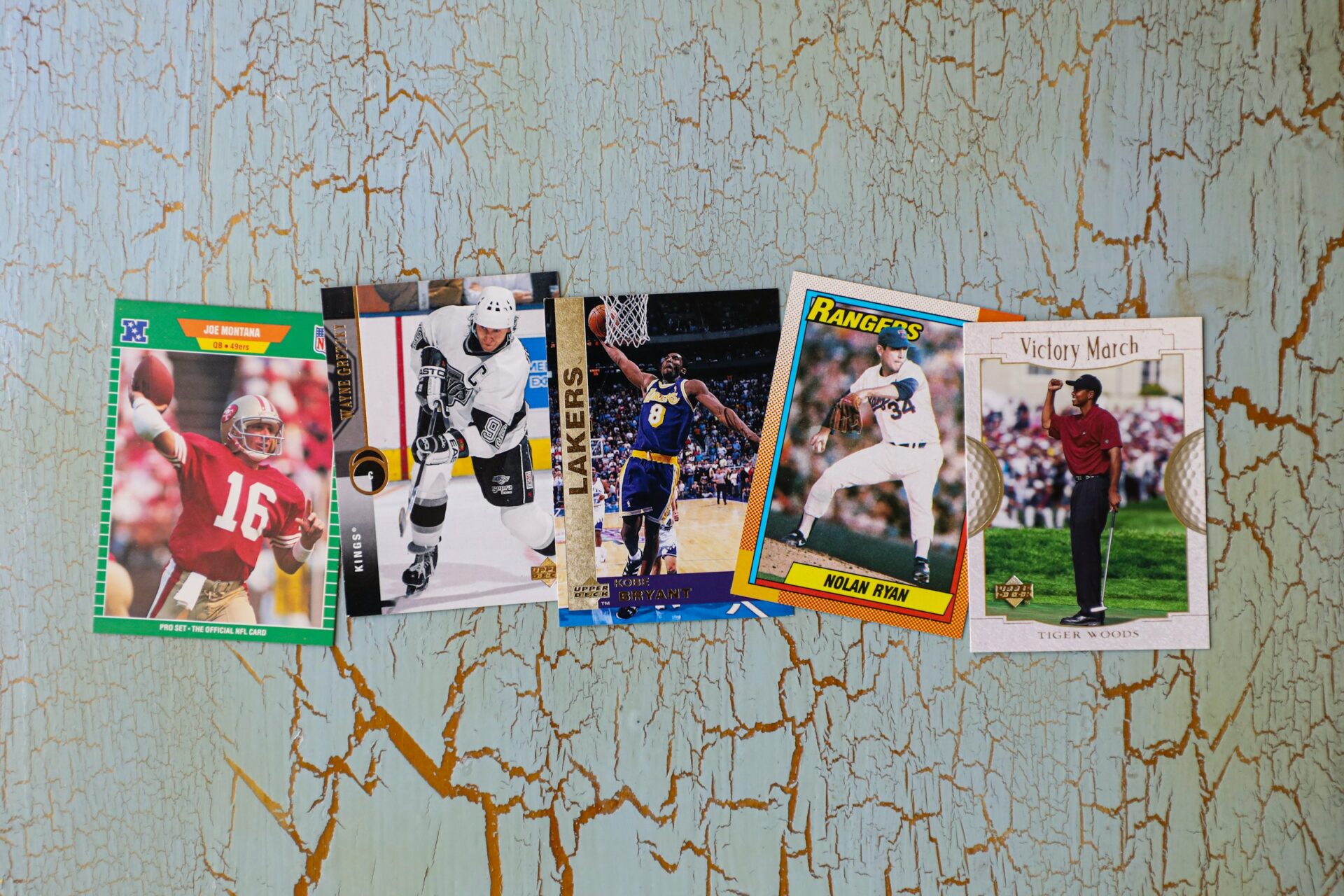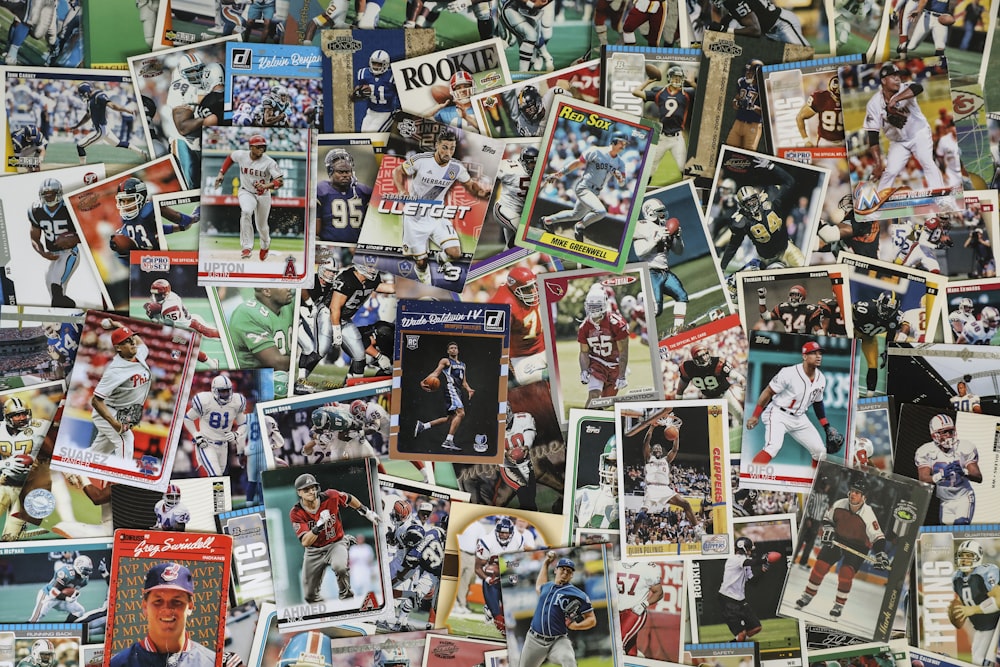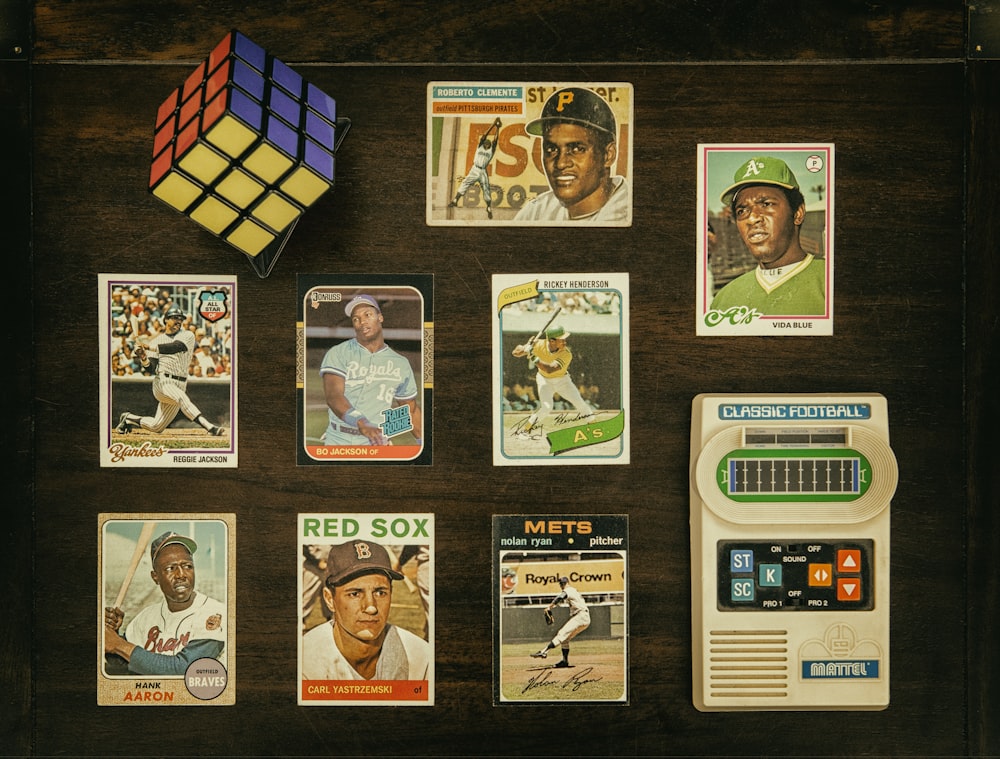Collecting sports cards is a great hobby that dates back hundreds of years. You can amass collectible cards as a solo hobby or as something fun to do with your friends. One of the benefits of buying sports cards is building an incredible collection.
But how do you get started? Check out our ultimate guide for how to build a collection of sports cards.
Start With Your Favorite, Sports, Teams, or Players
Photo by Mick Haupt on Unsplash
Building up a collection of sports cards takes time and effort. Because of that, the most successful collectors typically begin this hobby by buying or trading cards based on their favorite sports, teams, or players.
Starting with a sport or team you’re knowledgeable about can help you score some early wins as you start building your collection. If you love soccer and are unfamiliar with baseball, buying soccer card packs is likely to be more enticing than building a baseball card collection.
Choose What Kind of Cards to Collect
Photo by Mick Haupt on Unsplash
After you figure out your sports, teams, or players to watch, you’ll also want to consider what types of cards to collect. Here’s a quick breakdown of the most well-known types of sports cards:
- Base Cards: A base card is a single part of a larger set or series of cards. These cards typically contain a specific number that corresponds to their place as part of a set.
- Rookie Cards: Rookie cards mark a player’s first year playing a professional sport. It’s almost impossible to know if rookie cards will be valuable when they are first released. However, rookie cards of players that become legends are often quite valuable. In 2021, Mickey Mantle’s rookie card sold for a whopping $5.2 million!
- Autographed Cards: As you might imagine, these cards contain autographs from famous sports stars. Autographed cards are rare but can fetch high resale values from eager buyers.
- Insert Cards: An insert card isn’t part of a base card set. You’ll typically notice insert or parallel cards by their design that differs from other cards in a pack.
- Digital Cards: As technology advances, some sports card collectors are doing things digitally. Digital sports cards and non-fungible tokens (NFTs) could become big-ticket items.
Keep an Eye on Prices and Market Trends
Photo by Markus Spiske on Unsplash
Whether you want to build your collection at the lowest price or are ready to sell cards, knowing market trends and prices is crucial. As is the case with nearly anything, market trends affect the prices of sports cards. Ideally, card collectors recommend buying these items when prices are down and selling them as price trends increase.
Knowing the prices of sports cards also helps you avoid spending too much money on items you want. You’ll also avoid selling your cards for prices that are too low.
Network With Other Collectors
No matter whether you’re a new or experienced sports card collector, networking with other like-minded individuals is always a great idea. Other collectors may own or know where to find prized cards you’re unable to track down.
Some of the best places to find other sports card collectors include:
- Social Media: You can typically find card collectors on social media platforms such as Facebook, Instagram, and X.
- Internet Forums: There are also internet forums dedicated to collectible sports cards, including Sports Card Forum, Collectors Universe, and Sports Card Portal.
- Card Conventions: Depending on where you live, trading card conventions might be happening near your vicinity.
- Local Card Shops: Another great place to find other collectors is at card shops. These retail stores are great places to make trades with other collectors using your trading cards.
Store and Display Your Treasured Cards Safely
Photo by Rirri on Unsplash
There’s almost nothing more important to collectors than how they store and display their valued items. It’s not advisable to leave your cards lying around, which can expose them to particles, dust, extreme temperatures, and other potential hazards. These unwanted contaminants can quickly lower the value of your cards, sometimes making them go from valuable to nearly worthless.
Most card collectors store their cards in high-quality storage boxes, sleeves, or top-loaders. These items keep your cards protected from the elements. It’s also crucial to use acid-free storage materials. If not, acid can damage your cards over long periods of storage.
We hope that this guide helps you begin an incredible card collection. With enough time and patience, you can obtain a sports card collection that could make any collector jealous.
















